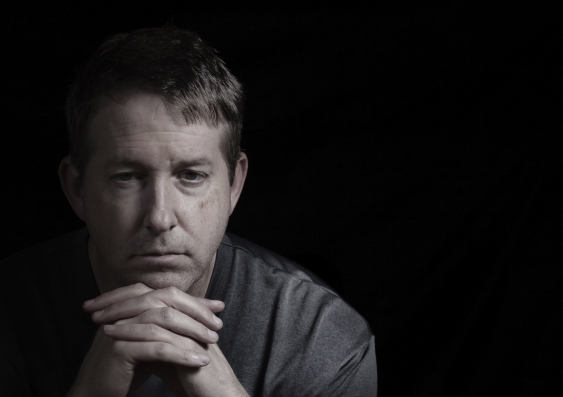The rumination trap
Unless you’re Pollyanna, you know how it feels to sink into the doldrums. But when does dwelling on the negative go too far?
Unless you’re Pollyanna, you know how it feels to sink into the doldrums. But when does dwelling on the negative go too far?

A few moments of reflection can help to process life’s upsets. But for many of us what should be a constructive process can become negative and even compulsive and, if left unchecked, turn into something much more serious. How do we know when it’s time to snap out of it?
Pollyanna, the upbeat character from Eleanor H. Porter’s 1913 novel of the same name, recommends playing the “glad game … a game my father taught me. It helps sometimes, when things aren’t going so well. If you knew how to play the game, you’d find something to be glad about too”.
While that's potentially good advice, playing the glad game is not for everyone and, let’s face it, the Pollyannas out there can be extremely annoying.
Humans naturally dwell, says Professor Michelle Moulds of UNSW’s School of Psychology, and it’s not necessarily a bad thing. We need to do it sometimes to get things done, learn from our mistakes and motivate ourselves to find new ways to operate. But it’s the length of time we spend analysing past events and repeatedly asking ourselves “why?” that can turn a helpful moment of reflection into a downward spiral.
Rumination is defined in psychology as “compulsively focused attention on the symptoms of distress, and on its possible causes and consequences, as opposed to looking for its solutions”. Rumination is different from the forward looking worry in that its focus lies in the past.
Long-term studies show people with a tendency to ruminate have an increased likelihood of developing more serious psychological illnesses, such as depression.
"Rumination is a core cognitive feature of clinically and residually depressed individuals, and has been linked to the duration, severity and maintenance of depressive episodes," explains Moulds, whose research program comprises experimental and clinical studies into rumination, its impact on memory functioning, and the role of intrusive memories in depressive disorders
“All of us engage in some form of reflection because it has its place – it helps us to learn from the past and to plan for the future,” Moulds says.
“But what we are interested in is how much the more compulsive version – rumination – happens in people prone to depression and how to break that cycle.”
In the lab, scientists can manipulate people to engage in rumination by instructing them to focus on their internal state and emotions. To encourage people out of rumination, scientists instead instruct their subjects to engage in distraction, by directing them to focus on objects in their external environments.
“One of the problems of thinking about ‘why’," Moulds says, "is that it is very passive. It’s done with a good intention but often it just promotes more ‘why’ questions, leaving us stuck in the past and not moving towards a solution.”
We can all fall into the rumination trap, but for people already depressed, over analysis and questioning can be especially debilitating. It can suck the joy out of life to such an extent that an individual who continually engages in it can feel low even when reflecting on positive events. Moulds’ studies show that depressed people and those with a history of depression don’t report any improvement in mood even when asked to analyse and ruminate about their positive memories.
“For depressed and formerly depressed individuals, looking back to something positive and analysing what the event meant doesn’t have any mood bolstering effects, whereas healthy, never-depressed folk feel much better,” Moulds says.
For depressed people, “shifting into analytical thinking means those memories just do not pack the happy emotional punch that they would if someone was feeling well”.
People on the verge of rumination can ask themselves a simple question: Is the ‘why’ working for me? Mould’s often puts this question to her clients who attend the School‘s Psychology’s Clinic.
“We teach our clients with depression to notice when they’re starting to do that and then shift to the much more active ‘how’ and ‘what’ questions. So instead of saying ‘why did this happen to me?’ say ‘ok I’m feeling bad today, what can I do to lift my mood?’
“It’s a subtle difference in language but it can shift the internal dialogue from ’analysis paralysis’ into a much more active mode.”
When you catch yourself sliding from reflection to rumination, numbers help. Try the two-minute rule.
“There’s one treatment in particular that talks about the two minute rumination rule – it’s this idea of giving yourself time to think about a situation and then stop and ask yourself: is this way of thinking promoting more questions that I can’t answer?” Moulds explains.
“Simply, avoiding or not thinking about problems can be just as counterproductive. Instead, we teach clients to tune in and notice how they are thinking, and if they hear ‘why’ repeatedly, stop and evaluate by asking ‘is this something that’s going to move me forward or is this something that’s going to keep me stuck?’
“Sometimes that’s enough to break the cycle.”